THE classic Indian film Manthan (The Churning) not only redefined the boundaries of cinematic storytelling but also set a strong precedent for the power of collective effort.
The 1976 crowdfunded drama, directed by Shyam Benegal, tells the story of rural dairy farmers who unite to form a cooperative and challenge the existing power dynamics in their society. It was widely celebrated for its compelling narrative, powerful performances, and social impact on India.
In 2024, the restored version of Manthan received a standing ovation at the Cannes Film Festival, reminding the world of its enduring relevance. Since then, it has been re-released in cinemas across India and will also be screened at this month’s BFI London Film Festival.
Eastern Eye took a closer look at some fascinating facts about Manthan:
The pioneering film was crowdfunded by 5,00,000 farmers, each contributing `2 (2 pence) towards its production. This initiative was spearheaded by the National Dairy Development Board and its then-chairman, Dr Verghese Kurien, who aimed to tell the story of the White Revolution, which transformed India from a milk-deficient nation into the world’s largest milk producer.
Director Shyam Benegal followed up his National Award-winning films Ankur (1974) and Nishant (1975) with Manthan (1976), which won the National Film Award for best feature film in Hindi and best screenplay.
Manthan was filmed on location in rural Gujarat, giving it an authentic feel. The use of real villages and local residents as extras added to the film’s powerful portrayal of rural life.
The film featured then-newcomers Girish Karnad, Smita Patil, Naseeruddin Shah, and Amrish Puri, who would all go on to become icons of Indian cinema.
Girish Karnad’s role as Dr Rao was inspired by Dr Verghese Kurien, the architect of the White Revolution and a co-writer of Manthan.
Smita Patil’s character, Bindu, powerfully represented the rural women who were very crucial to the success of the dairy cooperatives.
Composer Vanraj Bhatia blended traditional folk music with contemporary compositions, adding emotional depth to the story.
The film’s iconic song Mero Gaam Katha Parey won Preeti Sagar, the Filmfare award for best female playback singer.
Manthan emphasised the importance of selfreliance and collective action, themes that resonated with audiences across India.
The award-winning drama was screened at international festivals and was India’s official entry for best foreign language film at the Academy Awards.
Manthan inspired a generation of filmmakers to explore socially relevant themes such as agriculture, rural development, and the struggles of ordinary people.
The title Manthan, meaning ‘churning’ in Hindi, symbolises the upheaval in rural India and the transformative process leading to empowerment and self-sufficiency, much like the churning of milk to produce butter.
When the film was released, many farmers who had contributed to its funding arrived in large numbers at theatres, creating a unique scenario where the audience had a direct stake in the film’s creation.
Beyond its cinematic success, Manthan raised national awareness of the challenges faced by rural farmers and the transformative potential of cooperative movements. The film has since been used as an educational tool in institutions to discuss rural development, cooperative movements, and social justice.
The Film Heritage Foundation meticulously restored Manthan to 4K quality using original elements, including the 35mm camera negative preserved at the National Film Archive of India.
The restored version of Manthan was screened at the 2024 Cannes Film Festival, attended by original cast member Naseeruddin Shah, and received a five-minute standing ovation.
Manthan will be screened at the London Film Festival, running from next Wednesday (9) - October 20. whatson.bfi.org.uk






 Shefali Jariwala dies at 42 after cardiac arrest, industry mourns Kaanta Laga starInstagram/
Shefali Jariwala dies at 42 after cardiac arrest, industry mourns Kaanta Laga starInstagram/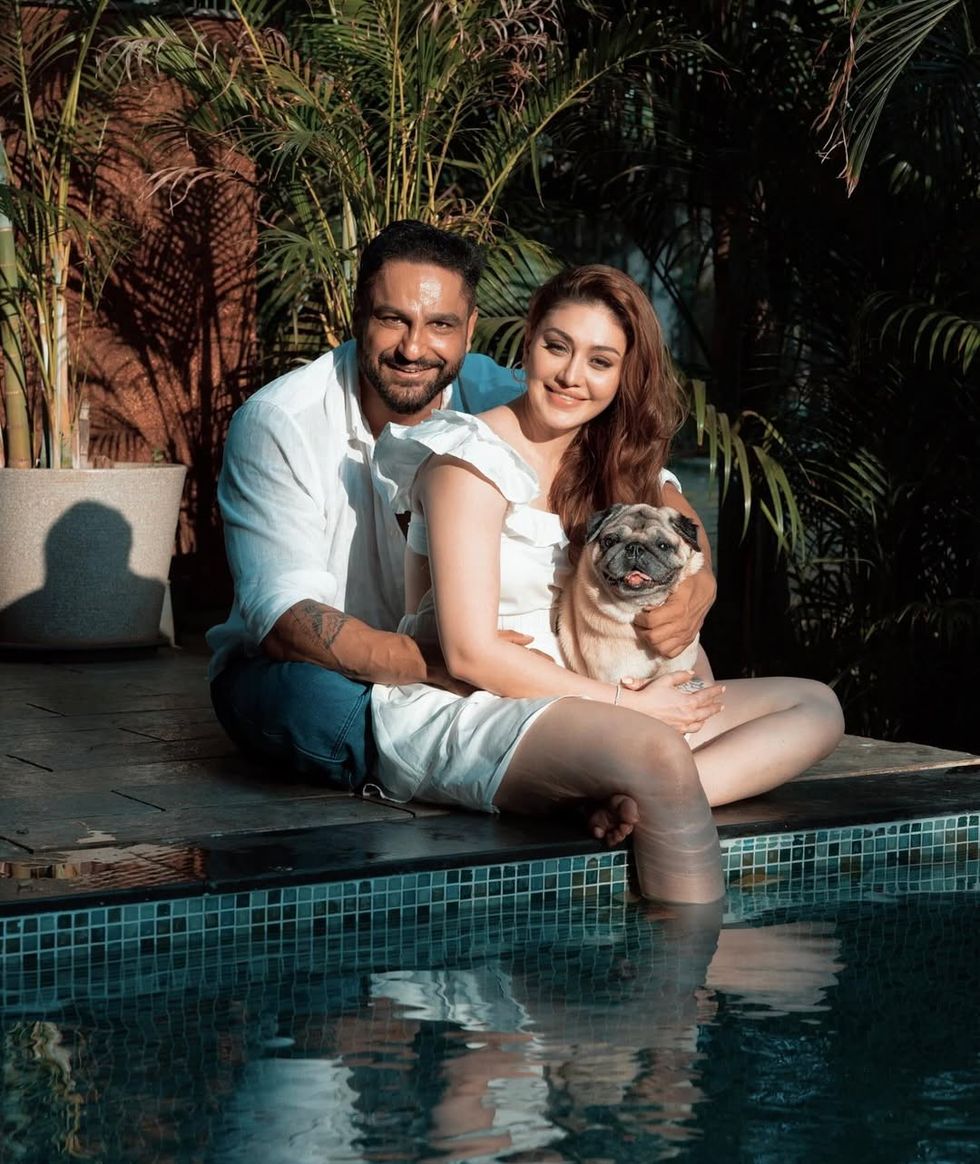 Shefali Jariwala was married to actor Parag Tyagi,Instagram/
Shefali Jariwala was married to actor Parag Tyagi,Instagram/








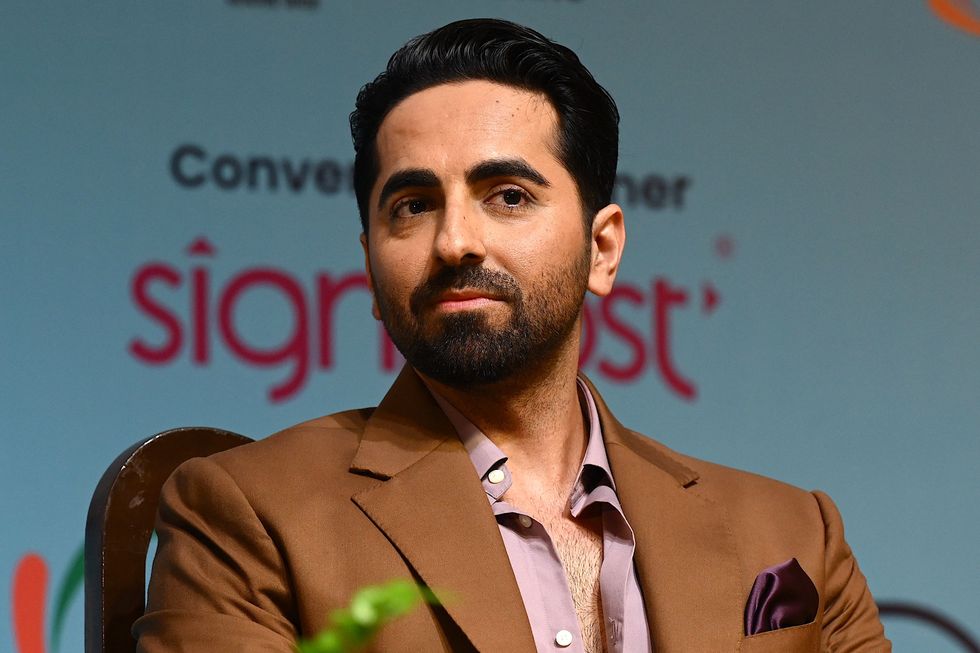 Ayushmann Khurrana attends an event at the FICCI Frames 2024 Getty Images
Ayushmann Khurrana attends an event at the FICCI Frames 2024 Getty Images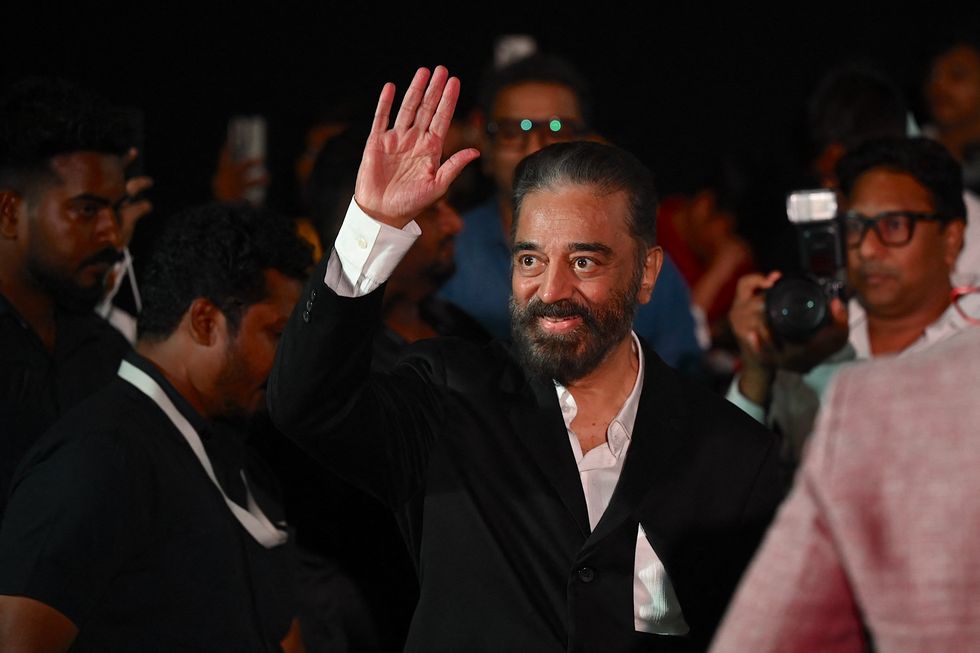 Kamal Haasan waves as he attends a press conference for 'Thug Life'Getty Images
Kamal Haasan waves as he attends a press conference for 'Thug Life'Getty Images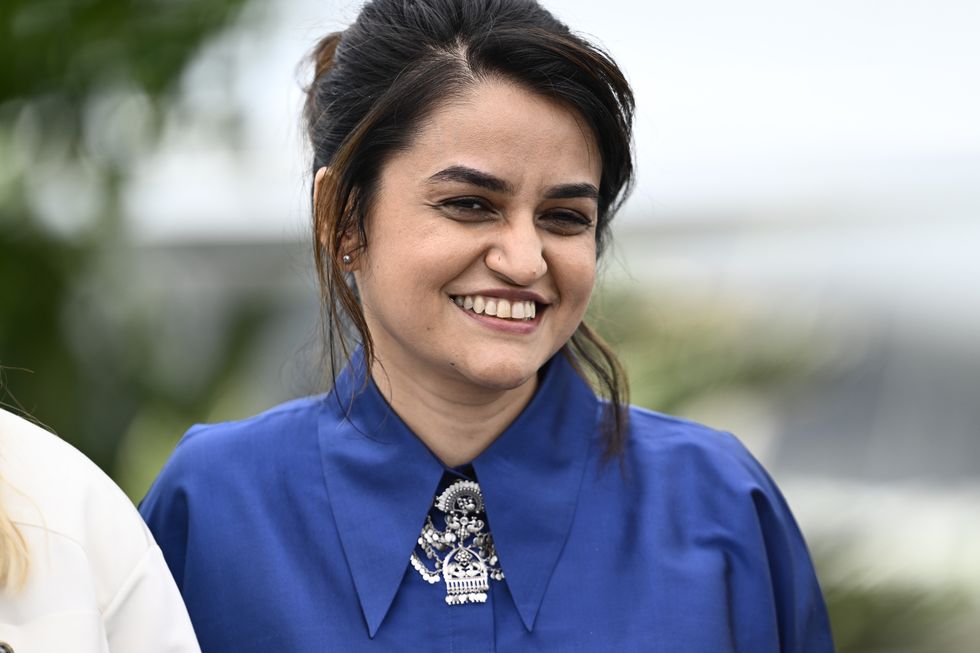 Payal Kapadia smiles during the Jury photocall at the 78th annual Cannes Film FestivalGetty Images
Payal Kapadia smiles during the Jury photocall at the 78th annual Cannes Film FestivalGetty Images
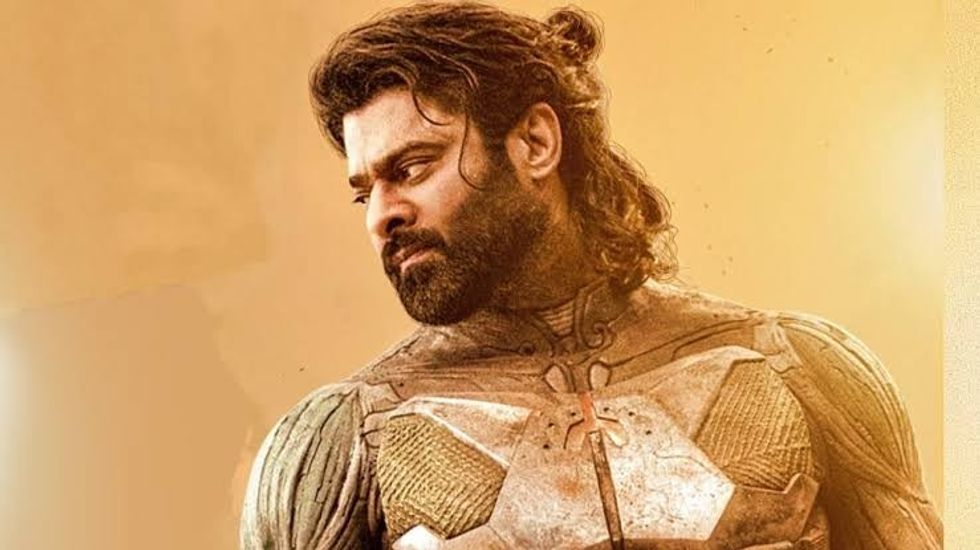 Prabhas in a still from Kalki 2898 AD which completed one yeargetty images
Prabhas in a still from Kalki 2898 AD which completed one yeargetty images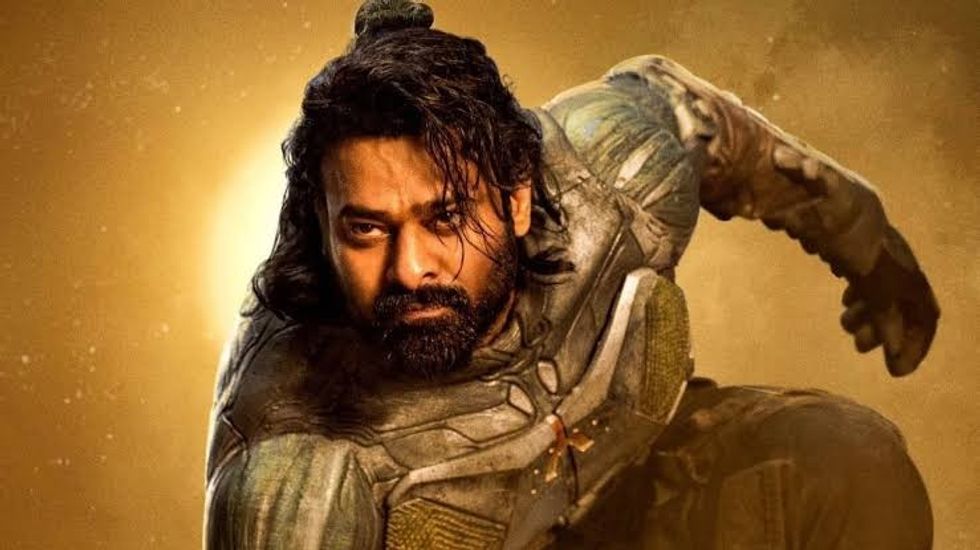 Kalki 2898 AD became one of the top three biggest openers in Indian cinemagetty images
Kalki 2898 AD became one of the top three biggest openers in Indian cinemagetty images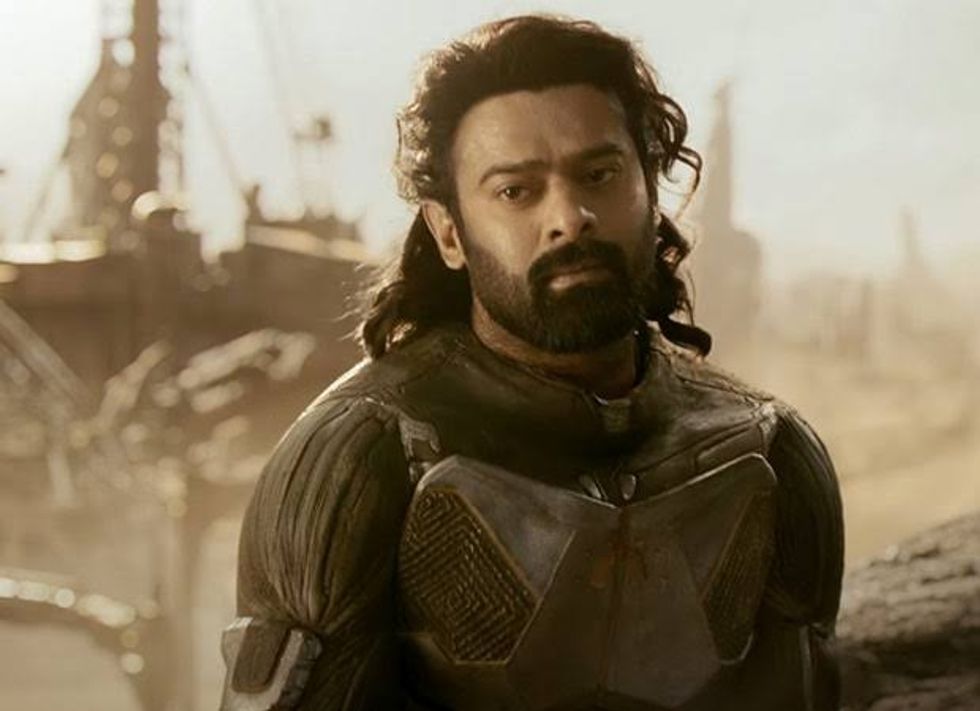 Kalki 2898 AD brought together sci-fi and mythology in a first-of-its-kind Indian filmgetty images
Kalki 2898 AD brought together sci-fi and mythology in a first-of-its-kind Indian filmgetty images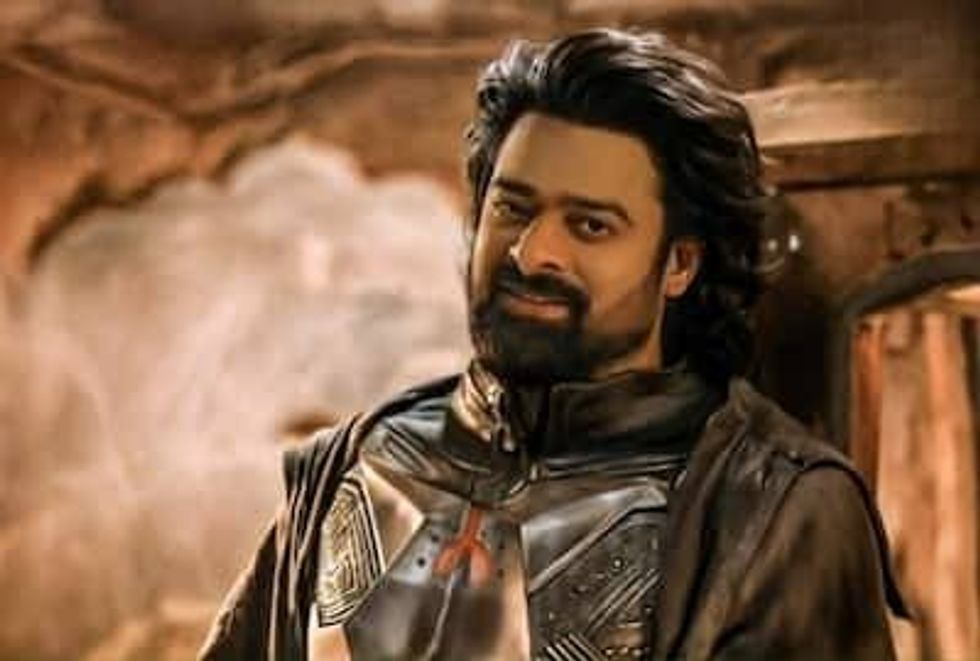 Prabhas plays the futuristic warrior Bhairava in Kalki 2898 AD getty images
Prabhas plays the futuristic warrior Bhairava in Kalki 2898 AD getty images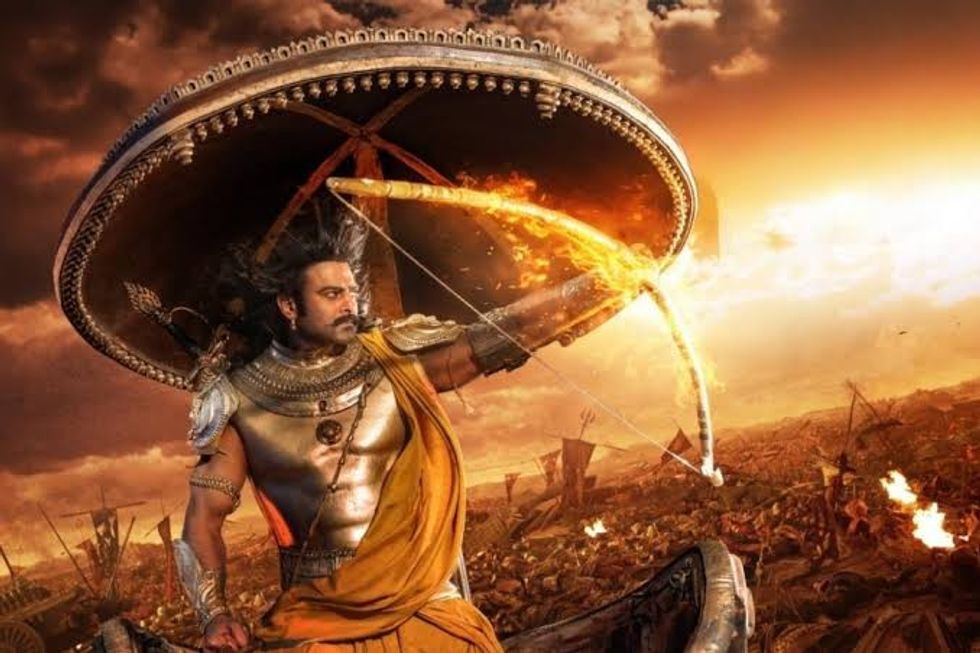 Prabhas in action during a high-intensity sequence from Kalki 2898 ADgetty images
Prabhas in action during a high-intensity sequence from Kalki 2898 ADgetty images
 Anusha Mani
Anusha Mani
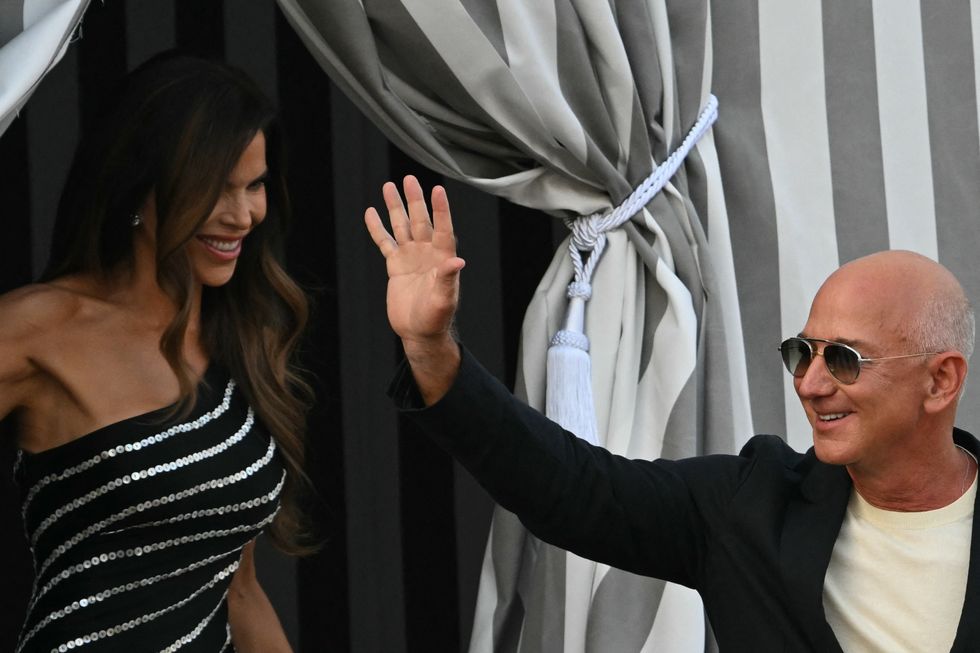 Lauren Sanchez and Jeff Bezos leave the Aman Hotel in Venice ahead of their wedding Getty Images
Lauren Sanchez and Jeff Bezos leave the Aman Hotel in Venice ahead of their wedding Getty Images 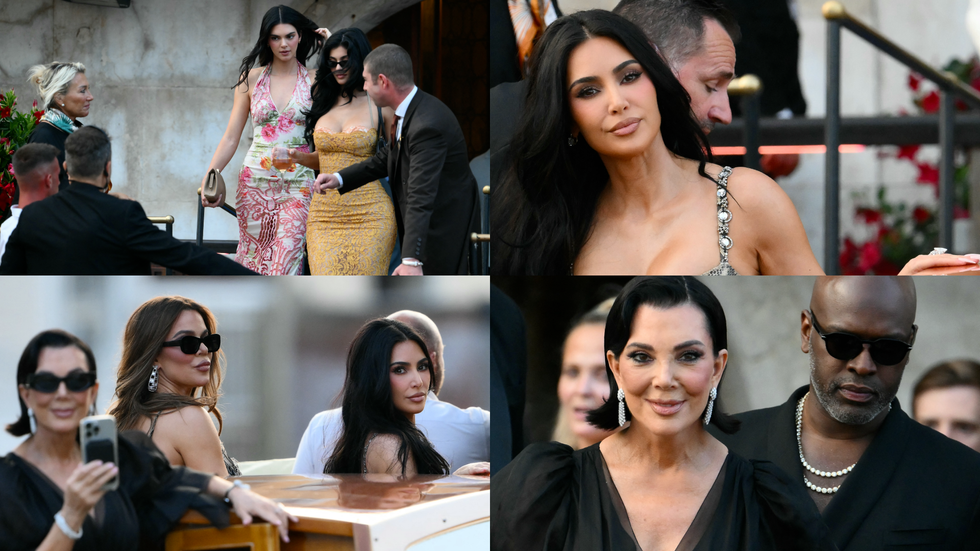 Kardashians seen boarding a boat ahead of the evening celebrations in VeniceGetty Images
Kardashians seen boarding a boat ahead of the evening celebrations in VeniceGetty Images  Oprah Winfrey wave to fans while heading to the welcome event Getty Images
Oprah Winfrey wave to fans while heading to the welcome event Getty Images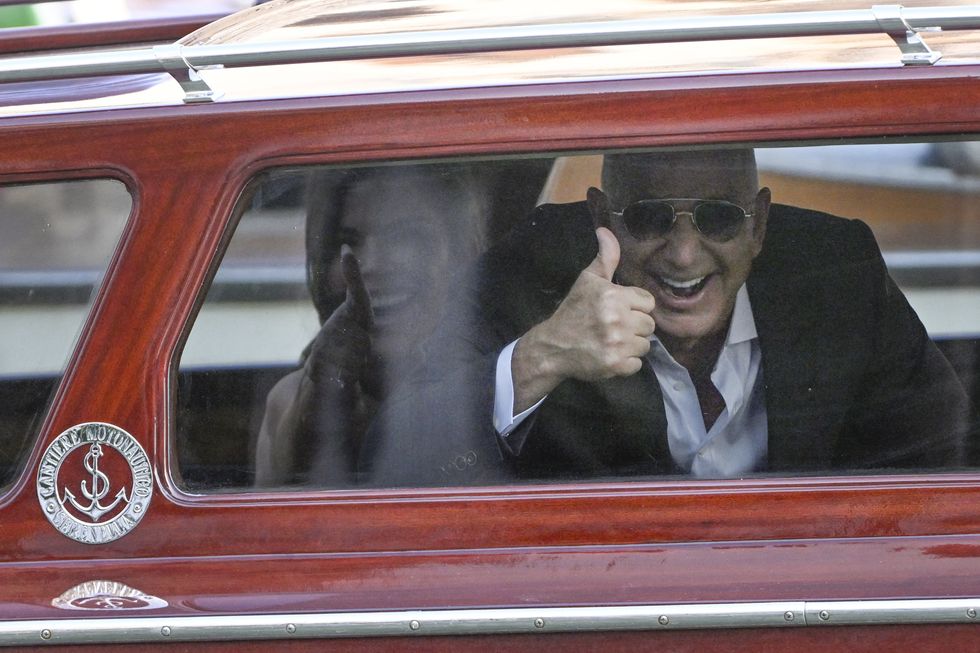 Jeff Bezos and Lauren Sanchez gesture in direction of Bezos' lookalike from the taxi boatGetty Images
Jeff Bezos and Lauren Sanchez gesture in direction of Bezos' lookalike from the taxi boatGetty Images